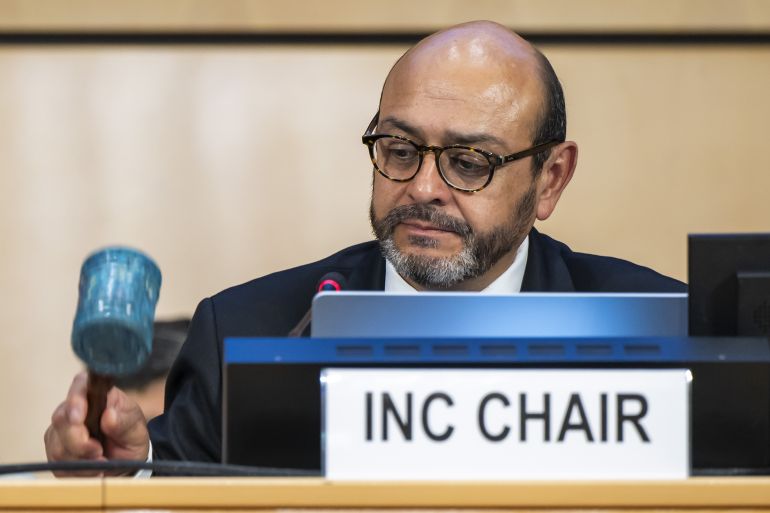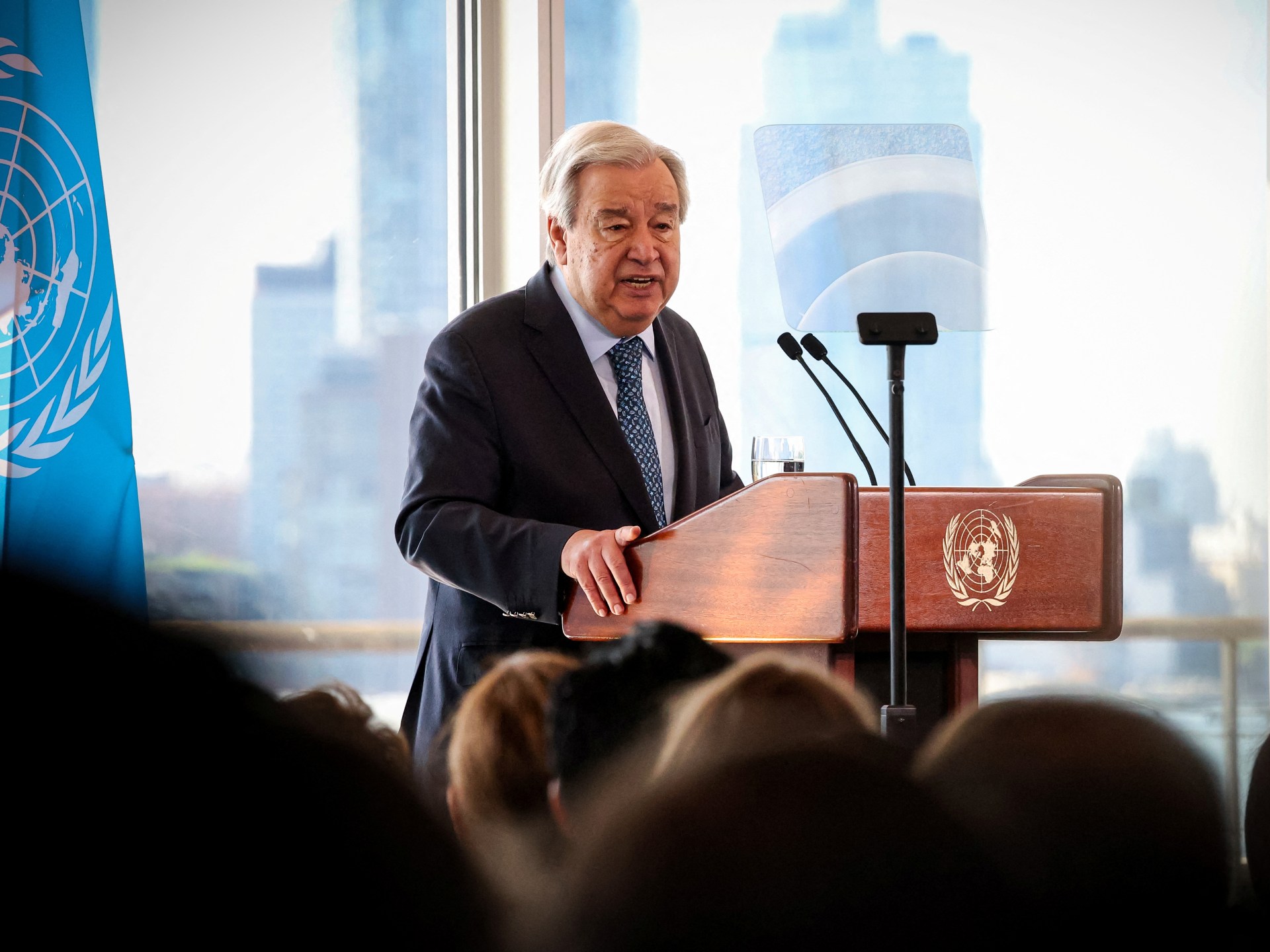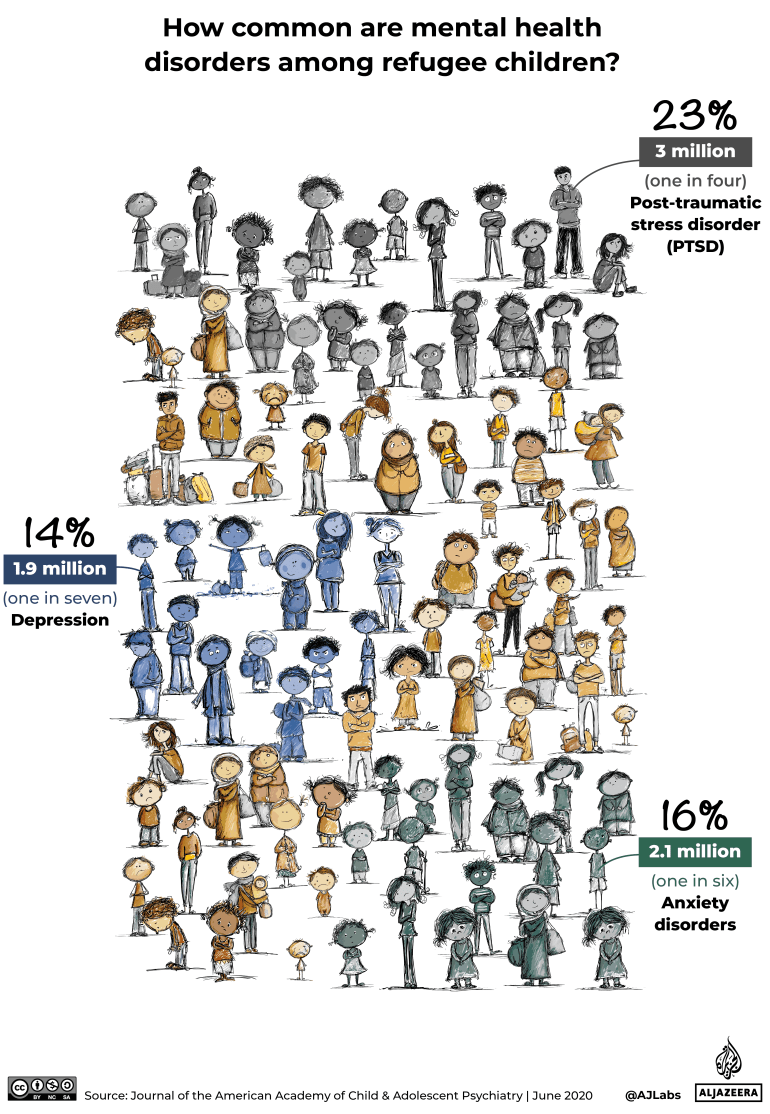No agreement in sight as UN plastic pollution treaty talks enter final day | Environment News
Negotiations to secure a global treaty to combat plastic pollution were in limbo as talks entered their final day after dozens of countries rejected the latest draft text.
With time running out to seal a deal among the 184 countries gathered at the United Nations in Geneva, the talks’ chair, Luis Vayas Valdivieso, produced a draft text based on the few areas of convergence, in an attempt to find common ground.
But the draft succeeded only in infuriating virtually all corners, and the text was immediately shredded as one country after another ripped it to bits.
For the self-styled ambitious countries, it was an empty document shorn of bold action like curbing production and phasing out toxic ingredients, and reduced to a waste management accord.
And for the so-called Like-Minded Group, with Gulf states leading the charge, it crossed too many of their red lines and did not do enough to narrow the scope of what they might be signing up for.
The talks towards a legally binding instrument on tackling plastic pollution opened on August 5 and were scheduled to close on Thursday, the latest attempt after five previous rounds of talks over the past two and a half years which failed to seal an agreement.
Valdivieso’s draft text does not limit plastic production or address chemicals used in plastic products, which have been contentious issues at the talks.
About 100 countries want to limit production as well as tackle cleanup and recycling. Many have said it’s essential to address toxic chemicals. Oil-producing countries only want to eliminate plastic waste.
The larger bloc of countries seeking more ambitious actions blasted what they consider a dearth of legally binding action. But oil-producing states said the text went too far for their liking.
Lowered ambition or ambition for all?
Panama said the goal was to end plastic pollution, not simply to reach an agreement.
“It is not ambition: it is surrender,” their negotiator said.
The European Union said the proposal was “not acceptable” and lacked “clear, robust and actionable measures”, while Kenya said there were “no global binding obligations on anything”.
Tuvalu, speaking for 14 Pacific island developing states, said the draft risked producing a treaty “that fails to protect our people, culture and ecosystem from the existential threat of plastic pollution”.
Britain called it a text that drives countries “towards the lowest common denominator”, and Norway said it was “not delivering on our promise … to end plastic pollution”.
Bangladesh said the draft “fundamentally fails” to reflect the “urgency of the crisis”, saying that it did not address the full life cycle of plastic items, nor their toxic chemical ingredients and their health impacts.

Oil-producing states, which call themselves the Like-Minded Group – and include Saudi Arabia, Russia and Iran – want the treaty to focus primarily on waste management.
Kuwait, speaking for the group, said the text had “gone beyond our red lines”, adding that “without consensus, there is no treaty worth signing”.
“This is not about lowering ambition: it’s about making ambition possible for all,” it said.
Saudi Arabia said there were “many red lines crossed for the Arab Group” and reiterated calls for the scope of the treaty to be defined “once and for all”.
The United Arab Emirates said the draft “goes beyond the mandate” for the talks, while Qatar said that without a clear definition of scope, “we don’t understand what obligations we are entering into”.
India, while backing Kuwait, saw the draft as “a good enough starting point ” to go forward on finalising the text.
The draft could now change significantly and a new version is expected on Thursday, the last scheduled day of the negotiations.
With ministers in Geneva for the final day of negotiations, environmental NGOs following the talks urged them to grasp the moment.
The World Wide Fund for Nature said the remaining hours would be “critical in turning this around”.
“The implications of a watered-down, compromised text on people and nature around the world is immense,” and failure on Thursday “means more damage, more harm, more suffering”, it said.
Greenpeace delegation chief Graham Forbes called on ministers to “uphold the ambition they have promised” and address “the root cause: the relentless expansion of plastic production”.
The Center for International Environmental Law’s delegation chief David Azoulay said the draft was a “mockery”, and as for eventually getting to a deal, he said: “It will be very difficult to come back from this.”
More than 400 million tonnes of plastic are produced globally each year, half of which is for single-use items.
Nearly half, or 46 percent, ends up in landfills, while 17 percent is incinerated and 22 percent is mismanaged and becomes rubbish.




